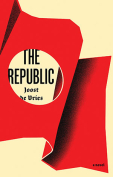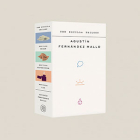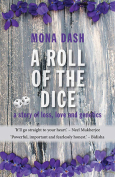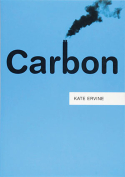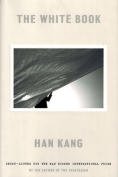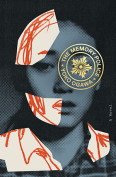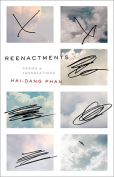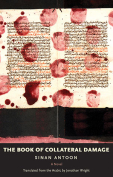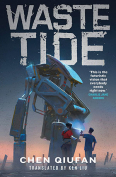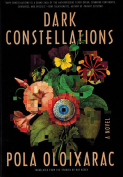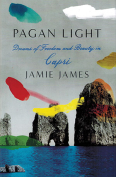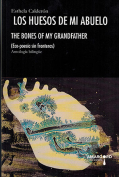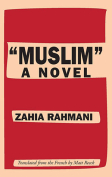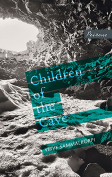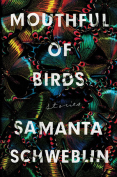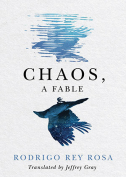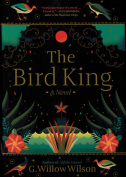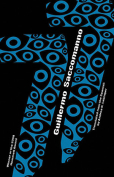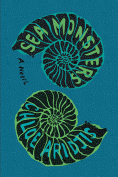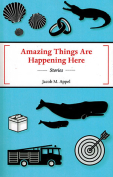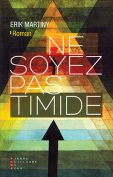Waste Tide by Chen Qiufan
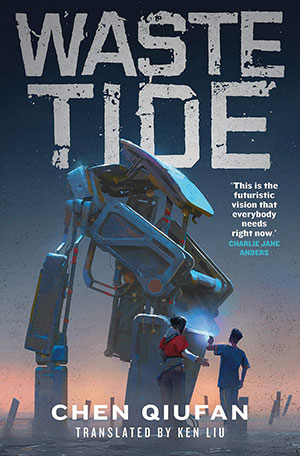 New York. Tor Books. 2019. 352 pages.
New York. Tor Books. 2019. 352 pages.
If you’ve read Ken Liu’s recent anthologies of Chinese science fiction in translation (Invisible Planets, 2018, and Broken Stars, 2019), then you’ve read Chen Qiufan’s exquisitely crafted, unrelentingly imaginative short stories. One of the biggest names in contemporary Chinese speculative fiction, alongside Liu Cixin, Xia Jia, and Hao Jingfang, Chen mixes Chinese culture and history with a fresh, forward-looking approach to issues of robotics, artificial intelligence, and the impact of social media and technology on human evolution. With this growing oeuvre of short stories in English, nearly all translated by Liu, it’s the perfect time to finally have a Chen novel in our hands.
Unlike his tightly focused short stories, Chen’s Waste Tide is a wide-ranging exploration of the challenges and tragedies of globalization: the proliferation of e-waste, the migrant workers who sacrifice their health to process that waste for very little money, the “economic hitmen” who prey on non-Western nations, and the environmental impact of e-waste and other trash. The novel is itself like a complex piece of technology made up of many interlocking parts that all rely on one another to make the whole thing function. Waste Tide reads like an opening salvo—a call to both Chinese and anglophone readers to recognize that the globe is more interconnected than they even imagined, down to the smartphones in their pockets and the air they breathe.
A rare example of the “sci-fi thriller” (one could even call it “sci-fi horror”), Waste Tide is, on the surface, the story of an American company negotiating with the local government and leaders of a small Chinese island dedicated to e-waste processing. For the representative of TerraGreen Recycling (in reality, the economic hitman Scott Brandle), convincing Silicon Isle’s local leaders to hand over control of the recycling process in return for promised environmental and quality-of-life improvements would result in huge financial gain and power over a crucial region in the East. Meanwhile, the local (or clan) leaders attempt to manipulate the negotiations to extract money and power for themselves and continue their generations-long feud. At the heart of the story are the migrant e-waste workers who have come to Silicon Isle from the countryside after being promised the path to a better life. Mimi, one such worker, represents the pain, brutality, and spiritual desolation that are the actual outcomes of migration to Silicon Isle.
When some hazardous e-waste is (accidentally?) shipped from America to the island for processing, Mimi ends up becoming infected with a strange virus that mutates when she is close to death. In one of the most stunningly beautiful and haunting scenes in modern science fiction, her spirit (or consciousness) enters the body of a discarded mecha and melds with it, the subsequent electrical connection ultimately changing her brain chemistry. When Mimi’s spirit jumps back into her human body, Mimi wakes up as two people: the traumatized waste worker and the powerful human-machine hybrid that can manipulate wireless signals and galvanize the other workers to rise up against the oppressive Silicon Isle natives.
This superbly translated novel about the perils of unchecked, rampant globalization and technology will give Chen Qiufan the attention he deserves in America and around the world.
Rachel S. Cordasco
Madison, Wisconsin
